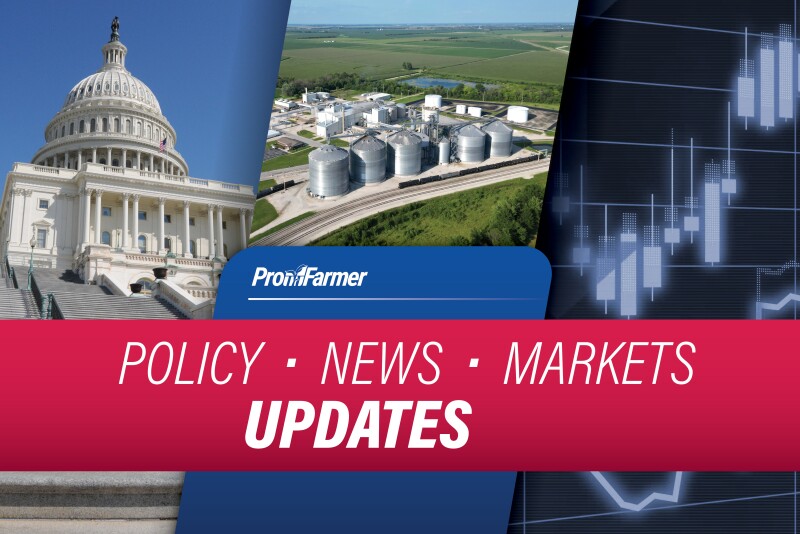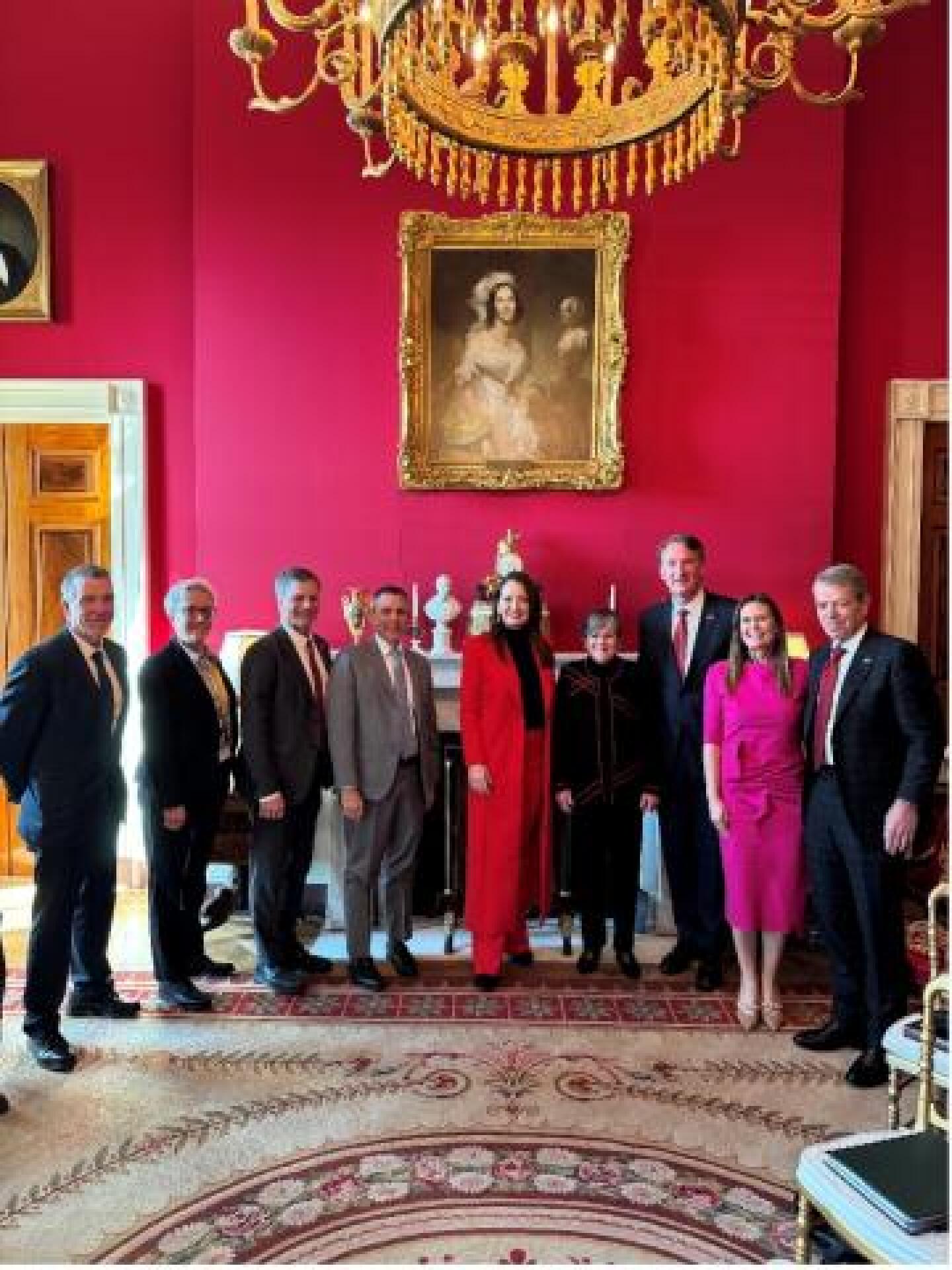Updates: Policy/News/Markets, Feb. 23, 2025
— Kash Patel, the newly sworn-in FBI director, acted against the DOGE email requesting gov’t employees to list their accomplishments. On Saturday, Feb. 22, Patel sent his own email to FBI employees, instructing them to disregard the request from the Office of Personnel Management (OPM). Patel’s email stated: “FBI personnel may have received an email from OPM requesting information. The FBI, through the Office of the Director, is in charge of all of our review processes and will conduct reviews in accordance with FBI procedures.” He further advised FBI staff to “hold off on any replies for the time being” and await a unified response from the bureau. This action by Patel indicates a clear stance against Elon Musk’s and DOGE’s initiative, effectively telling FBI employees that the Bureau will handle its own personnel evaluations rather than complying with the broader federal mandate. This move has been interpreted as a sign of potential power struggles within the Trump administration, with Patel’s resistance suggesting that not all officials agree with Musk’s approach to downsizing the federal workforce. — USDA Secretary Brooke Rollins hinted in a post on X that “big announcements” would be coming this week (link). A clear teaser as no details or other hints were provided. Possibilities include: (1) Trump administration’s new approach to fighting HPAI and lowering egg prices; (2) More farmer funding freed up from prior review holds; (3) Info on timing of $10 billion in economic aid and $21 billion in ag disaster aid. — Trump admin. officials pressure Mexico on tariffs against China, according to reports. Top U.S. officials urged Mexico to impose duties on Chinese imports during a meeting in Washington, as part of efforts to avoid tariffs threatened by President Donald Trump. Commerce Secretary Howard Lutnick, USTR nominee Jamieson Greer (who should be confirmed this week), and economic adviser Kevin Hassett conveyed the message to Mexico’s delegation, led by Economy Minister Marcelo Ebrard. Mexican President Claudia Sheinbaum has increased measures against cheap Chinese imports to support domestic industries and ease U.S. concerns. However, Mexico made no commitments regarding China during the talks. Instead, both sides agreed to form a working group to continue discussions. Trump has warned Mexico and Canada to curb migration and fentanyl flows or face 25% tariffs. The White House extended a deadline for those duties, while the U.S. imposed an extra 10% tariff on Chinese imports. — Traders rush to buy aluminum ahead of Trump’s tariffs. U.S. traders are stockpiling aluminum in anticipation of new tariffs announced by President Trump. On Feb. 10, 2025, Trump revealed a 25% tariff on all steel and aluminum imports, a sharp increase from the previous 10% tariff on aluminum. Key market impacts include: With tariffs taking effect on March 12, aluminum stocks like Alcoa Corp. have surged over 4%. Given that the U.S. relies on foreign sources for over 80% of its aluminum — 70% from Canada — traders are rushing to secure supplies before the price hike. — Russia’s invasion of Ukraine reaches the three-year mark on Monday. The U.S. and Ukraine are nearing a deal that would hand valuable mineral rights to the U.S., an agreement that the Trump administration has sought as compensation for military aid to fight off Russia’s invasion. — Link to The Week Ahead that comments on a tentative House floor vote Tuesday on a budget resolution needed for a reconciliation measure. Ag focus is on USDA’s Ag Outlook Forum and a food price update. Financial focus comes Friday with the PCE Price Index for January. That’s the Fed’s preferred inflation gauge. The second estimate for fourth-quarter gross domestic product in the U.S. is due Thursday, along with durable goods data for last month. — Global rice prices are projected to drop substantially in 2025, driven by increased production, favorable weather, and policy changes. A rise in global rice output by 8% in 2024 is expected to push prices down by 11% in 2025. The lifting of India’s export restrictions and increased supply from major producers like Vietnam and Thailand are further easing market pressures. Meanwhile, U.S. and Vietnamese rice prices have hit multi-year lows due to weak demand. While falling prices benefit consumers, they present challenges for farmers and exporters, with shifting trade dynamics shaping the market outlook. — Trump targets China’s shipbuilding dominance with new fees. The Trump administration is proposing new fees on Chinese-built commercial ships and mandates requiring a portion of U.S. exports to be transported on American vessels. The move aims to counter China’s dominance in shipbuilding and maritime logistics but may lead to higher costs for American consumers. The proposal follows a U.S. trade investigation that found China’s state-backed industry undercutting global competition. The plan, announced Friday, includes service fees of up to $1 million for Chinese-built ships entering U.S. ports and phased-in requirements for American-flagged and operated vessels to transport U.S. goods. While the initiative is backed by labor unions and national security officials, retailers warn it could raise consumer prices. The measures are now open for public comment, with a hearing set for next month. — Trump orders CFIUS to restrict Chinese investments in key sectors. President Donald Trump signed a memorandum directing the Committee on Foreign Investment in the United States (CFIUS) to limit Chinese investments in critical sectors such as technology, healthcare, energy, and agriculture. The directive also aims to curb foreign exploitation of U.S. capital and technology while expanding restrictions on outbound investments to China in areas like semiconductors and AI. Additionally, the administration seeks to protect U.S. investors by auditing foreign companies on American exchanges and restricting foreign adversary firms from pension plan contributions. The move is part of Trump’s broader second-term agenda, which includes imposing tariffs on China and other trading partners. — Big Oil’s support for biofuel mandates raises concerns over refining capacity and jobs. The American Petroleum Institute and the biofuel industry have pushed for higher mandates (link) under the Renewable Fuel Standard (RFS), a policy opponents linked to at least four refinery closures (link) since 2019 and a decline in domestic refining capacity (link). In response, the Fueling American Jobs Coalition — a group of union workers and independent refiners advocating for RFS reforms — criticized the move, stating: “This move proves what independent refiners and their workers have been saying for years: Global, multinational oil companies are more than happy to advance Green New Deal ethanol and biofuel mandates that threaten American, independent refiners and their union workers to the detriment of consumers and American energy security. The U.S. has lost 1.4 million barrels per day of refining capacity since 2019, in part due to sky-high RFS compliance costs. This letter proves Big Oil wants to use costly regulations to push out the competition. If this policy is carried out, it will mean more money in their pockets, but fewer American jobs and fuel supplies, resulting in higher consumer prices and a greater reliance on foreign, imported fuel supplies.” — If you think you were busy the past week, look at USDA Secretary Brook Rollins’ flurry of events (link). The only one busier than her? Her boss, President Donald Trump. At week’s end she had lunch with HHS Secretary Bobby Kennedy to discuss how they can work together to Make America Healthy Again, hosted a roundtable with Governors at the White House to discuss their strategy and partnership to combat avian flu, participated in the Governors’ Business Meeting at the White House and addressed the Republican Governors Association. |
| KEY DATES IN FEBRUARY |
21: Univ. of Michigan Consumer Sentiment | Existing Home Sales | USDA Cattle on Feed
25: Consumer Confidence | USDA Food Price Outlook
27: Durable Goods Orders | GDP | USDA Outlook Forum | Outlook for U.S. Agricultural Trade report
28: Personal Income and Outlays (PCE Price Index) | International Trade in Goods | USDA Outlook Forum concludes
| LINKS |
Economic aid for farmers | Disaster aid for farmers | Farm Bureau summary of aid/disaster/farm bill extension | 45Z tax incentive program | Poultry and swine line speeds | U.S./China Phase 1 agreement | WASDE | Crop Production | USDA weekly reports | Crop Progress | Food prices | Farm income | Export Sales weekly | ERP dashboard | RFS | IRA: Biofuels | IRA: Ag | SCOTUS on WOTUS | SCOTUS on Prop 12 pork | Gov’t payments to farmers by program | Farmer working capital | USDA Ag Outlook Forum | Eggs/HPAI | NEC task force on HPAI, egg prices | Options for HPAI/Egg prices | Trump tariffs | Greer responses to lawmakers | Trump reciprocal tariffs |


